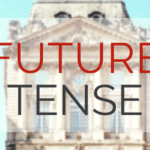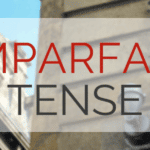
The French near future and recent past are how you talk about things that are going to happen (the near future) or that just happened (the recent past). They’re both conjugated in the present tense (with an additional imparfait version for the recent past).
Understanding the French Near Future
The near future (or le futur proche) construction is different from the future tense in these ways:
French Near Future
The near future translates into what is going to happen.
Using the near future implies that the verb is going to happen relatively soon (thus the “immediate” in the concept’s name). It’s also a little more casual.
It’s especially useful because it allows beginning French speakers to talk about the future before learning the future tense.
French Future Tense
The future tense (taught in a separate lesson) translates to sentences that involve “will”, such as, “I will explore” or “She will decide”.
In most instances, like talking about something that will happen in the distant future or just talking about a future event more formally, using the proper future tense would be the preferred choice.
French speakers and readers will generally understand what you mean when you use the near future, even if the future tense would be a better option. The near future is a good stepping stone until you master the future tense.
How to construct the French near future
You construct the near future in French almost exactly the same way as you do in English, with aller (“to go”) conjugated in the present tense + the infinitive form of the verb that is “going to” happen.
The only difference is that in English, the closest translation of the near future is not the normal present tense (“I go”, “he goes”, etc.). Instead, we’ll use what is called English’s present continuous tense. This is the version of the present tense that includes “I am going“, “he is going“, etc.
Here’s a comparison of the English versus French near future constructions. Note how similar they are.
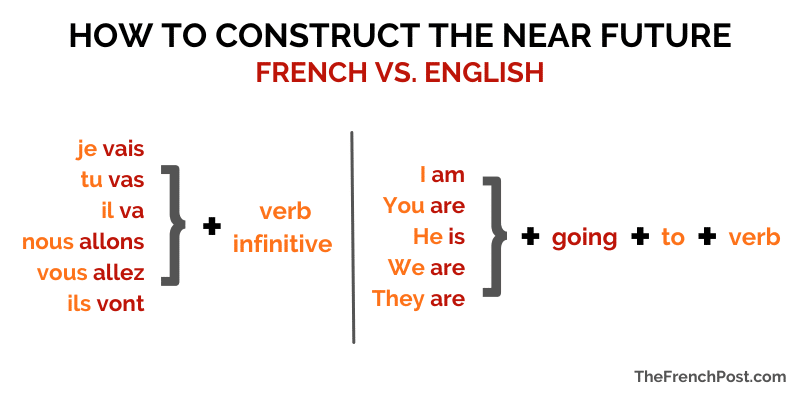
Some more examples:
“He is going to learn.” → Il va apprendre
“We are going to leave.” → Nous allons partir.
Understanding The French Recent Past
Compared to the near future, the recent past (or le passé récent, “the recent past”) is a little less versatile, because there’s a strong implication that the past event happened very recently.
How to construct the French recent past
In English, the recent past is how you describe to your friend what she just missed after she left, or an action that was just completed.
Discussing the recent past doesn’t use the word “just” like English does, though. Instead, it uses the conjugated form of the verb venir (“to come”) + de (“from”) + whatever just happened.
If you think of these sentences in their literal translation, you can see why using venir makes some sense. The subject has just “come from” whatever event in the past.
When you’re just learning the recent past you’ll probably automatically do the literal translation first, until you form the habit of applying the more accurate English translation whenever you see venir + de.
There are two tenses to use when talking about the recent past: the present tense, where something just happened; and the imparfait, where something had just happened.
How to construct the French recent past in the present tense
In the present tense of the recent past, you use the present tense conjugation of venir. Here’s a comparison of the English versus French recent past constructions in the present tense.
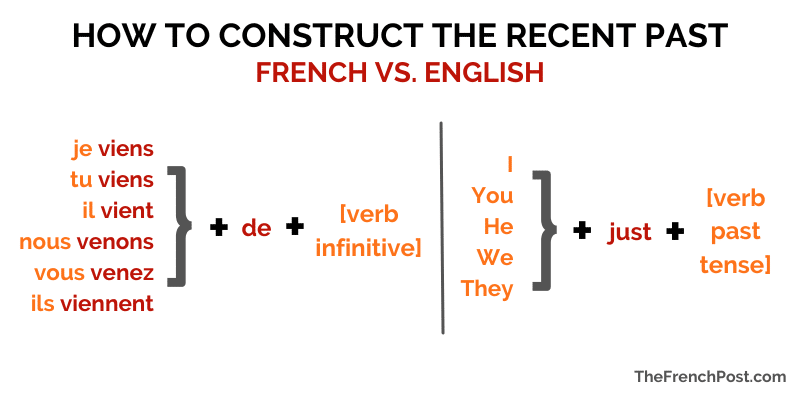
For example:
“I’m not hungry; I just ate.” → Je n’ai pas faim; je viens de manger.
“We just finished studying.” → Nous venons de terminer nos études.
How to construct the French recent past in the imparfait
The recent past can also be used with venir in the imparfait form. Why would we need to describe the recent past in the past? It’s a similar idea to plus-que-parfait: you use it when you need to say that something happened before something else happened in the past. In the case of the recent past, you’re saying it occurred immediately before the other past event.
The imperfect recent past is constructed with the imparfait conjugation of venir. See the chart below.
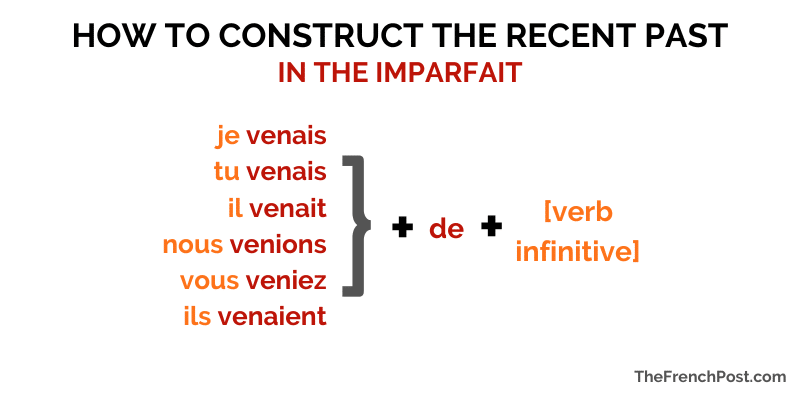
It’s often followed by the passé composé to describe whatever the “interrupting” event was. For example:
“He had just tripped on the step when he realized his pants were too long.” → Il venait de trébucher sur la marche lorsqu’il s’est rendu compte que son pantalon était trop long.
“We had just finished eating when my mother called.” → Nous venions de finir de manger quand ma mère a appelé.
That’s it for the recent past! Just remember that the recent past should be used for things that have just happened. It does not have the same flexibility as the near future, and it cannot be substituted for a general past tense (at least not without confusing French speakers).
Next Steps
If you’re comfortable using the near future, you might be ready to move on to the simple future (futur simple)! Or you might want to understand how past tenses work in French before you dive into a specific past tense like the passé composé.

